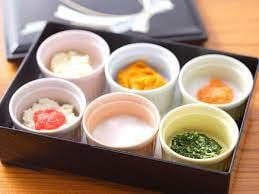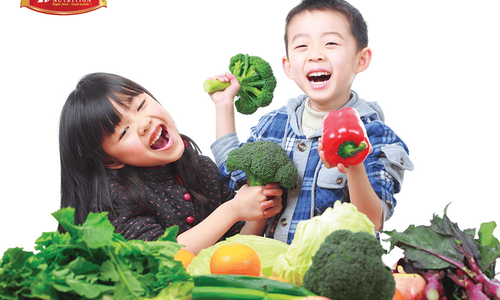This is an automatically translated article.
Baby's first time eating solids will probably make many parents worried and confused because they don't know when is the right time for their baby to start eating solids and in the first times, what to pay attention to about health of children.
1. When does your baby start eating solids?
1.1 Time to introduce solid foods for the first time When your baby starts to eat solid foods is a matter of concern to many parents with children in the age of preparing to eat solids. In many references on the internet as well as the experience of many parents, we can see that there are 2 choices about when to start weaning babies, that is from 4-6 months old, or from 6 months old. month old. So when is the right time, why is there no consensus on when to start solids for children?
In fact, introducing solid foods from 4-6 months of age was the recommendation of the World Health Organization (WHO) before the period 2001 - 2003 derived from the recommendation of exclusive breastfeeding for 4-6 months. early life.
However, in 2005, WHO made an adjustment to the time of first introducing solid foods to babies from 6 months of age. This adjustment is intended to recommend that infants should be exclusively breastfed for the first 6 months of life for comprehensive growth and development, optimal health, and maximum nutritional value from breast milk to protect children during this period.
Adjustments for the duration of exclusive breastfeeding and the time of weaning have been approved, applied and strictly implemented in several countries around the world. Some countries have expressed support for the idea of exclusive breastfeeding for as long as possible and flexibility about when to start solids.
1.2 Signs that your baby is starting to eat solids Age is not the only factor that determines when a baby's first solid food will be, but also depends on the development and readiness of each child. When the baby is 4-6 months old, parents need to watch for the following signs to know if the baby is ready for solid foods:
The baby has kept his neck, can sit upright to eat with the support of a high chair . Children have reflexes to open their mouths when they see food brought to their mouths, and children can even show curiosity and interest in food while parents are eating, by reaching out to ask for food. Children have a reflex to stick out their tongue, use their tongue to pick up food from the mouth into the throat and swallow when it is fed. Babies weigh enough to start solids, usually twice their birth weight (from 6kg). 1.3 Harms when starting solids too early or too late In addition to age, signs, parents also need to consider the effects of introducing solids too early (before 6 months of age) or too late (after 6 months of age). 6 months old) to decide the appropriate time to introduce solid foods.

Cha mẹ không nên cho bé ăn dặm lần đầu quá sớm
Baby starting solids too early can cause the following harm:
Decreased breastfeeding, which in turn reduces breast milk production. The immune system, digestive system and many other functions of children are not fully developed, leading to the inability to effectively absorb nutrients from foods, as well as children not being ready and skilled to process food. eat. Increased risk of food allergies and gastrointestinal infections. Increases the pressure to eliminate unnecessary substances to the outside. Babies who start weaning too late can cause the following harms:
Failure to make up for the lack of energy and essential nutrients from 6 months of age. Reduce the development, physical growth of children. Affects a child's developing immune system, increasing the risk of allergies or infections such as introducing solids too early. Slow down the development of children's motor skills related to eating such as chewing, swallowing, grasping food, ...
2. Notes when feeding your baby for the first time
After making a decision on the time of weaning, parents should keep in mind the following during the first weaning times:
Weaning does not completely replace breast milk: Breast milk still plays an important role in the baby's life. in the first year of a child's life, accounting for more than 1/2 of the nutritional needs of a child from 6 to 12 months of age and 1/3 of the need for a child from 12 to 24 months of age. Therefore, a baby's weaning diet needs to be balanced with breast milk. For children to start weaning with cereals: Rice is one of the cereals that parents should try in their children's first weaning to both increase iron supplementation and reduce the risk of allergies compared to other cereals. . Give children time to get used to solid foods: In the first times, children can only eat 1-2 tablespoons because they are not used to it. Give your baby time to experience and get used to solid foods. When children get used to it, it is possible that children will enjoy food more and then parents can increase the number of meals as well as the amount of food for children. Feed MSG first before salty powder: Feeding baby solids is also an option. Mothers can start babies with monosodium glutamate, after about 2-4 weeks, if the baby adapts and digests well, she can switch to salty powder. With MSG, you can mix it with breast milk or formula and don't need to add any food. With salty powder, mothers can add more meat, fish, vegetables, ... to provide adequate flour, protein, fat, vitamins and minerals for children. Avoid forcing your child to eat: When a child spits out food, or bites his lips, closes his mouth, turns his head away or even squeals when he sees food, it is a sign that he wants to stop eating. At that time, the mother should not force the child to eat to reach the full amount, but should stop and wait until the child is hungry and return to the meal. Similar to new foods, if the child does not like it for the first time, it means that the child has not adapted to that food. Be patient and try again next time and give your baby time to learn to accept new foods. Number of meals: For the first time, babies can only eat liquid food with the number of meals once a day. The mother should pay attention to monitor if the child is adapting and digesting well, can gradually increase the amount of food in each meal and increase to 2 meals/day for the next 2 months until the child can eat 3 meals/day at 10 - 11 months old.

Cho bé ăn dặm lần đầu cần quan tâm đến số bữa ăn của trẻ
3. Health problems to monitor for the first time eating solids
When your baby first starts eating solids and tries new foods, moms need to pay attention to monitor problems related to the baby's health, that is, food allergies and how the baby goes out.
Signs of a food allergy : Red rash on face or anus, vomiting, spitting food out, gas, bloating, watery eyes, runny nose, fussiness, loose or mucus stools are Signs that your child may have a food allergy. At that time, the mother needs to stop giving the child that type of food immediately and contact the doctor for advice on appropriate treatment. To avoid allergic reactions, mothers should let children try a food for about 2-3 days for the first time and wait to monitor the child's reaction to the food. Signs of your baby's digestion through stool: Loose, watery, mucusy stools or an unpleasant smell can be a sign that your child's digestive system is stimulated by food and cannot be tolerated. At that time, the mother needs to stop giving the child that type of food, reduce the consistency of the food and wait for a while for the child's digestive system to adapt. Signs of normal stools of children are the color of the stools similar to the color of food, the stools are harder when the baby eats solid foods, the stools are messy with food, because the baby's digestive system is getting used to it. Your baby's first weaning is very important because it marks a new milestone on a child's developmental journey. When giving baby solids for the first time, mothers need to choose a reasonable time, monitor the signs that the baby is ready to eat solid foods and digestive problems and health problems of the child.
For children to be healthy and develop well, it is necessary to have a nutritious diet in terms of quantity and quality balance. If children are not provided with adequate and balanced nutrients, it will lead to diseases of excess or lack of nutrients, which adversely affect the comprehensive development of children in terms of physical, mental and motor skills.
Children who do not eat properly are at risk of micro-mineral deficiency causing anorexia, growth retardation, malabsorption,... If they notice the above signs, parents should supplement their children with products. The supplement contains lysine, essential micro-minerals and vitamins such as zinc, chromium, selenium, and B vitamins to help fully meet the nutritional needs of children. At the same time, these essential vitamins also support digestion, enhance nutrient absorption, help improve anorexia, and help children eat well.
Parents can learn more:
Signs of zinc deficiency in children
Micronutrient deficiency and failure to gain weight in children
Please regularly visit Vinmec.com website and update useful information to take care of your child. Take care of the baby and the whole family.
External references:
Book "Strong stepping stone into life - Caring for children from 6 - 12 months" by Dr. Tran Thi Huyen Thao. Refer to the section “When should we start weaning?”













